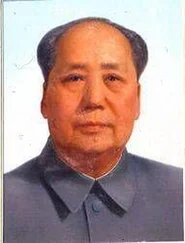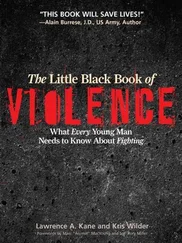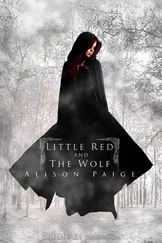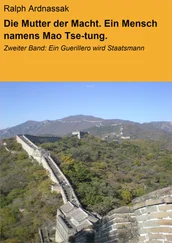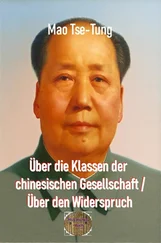Tse-tung Mao - The Little Red Book
Здесь есть возможность читать онлайн «Tse-tung Mao - The Little Red Book» весь текст электронной книги совершенно бесплатно (целиком полную версию без сокращений). В некоторых случаях можно слушать аудио, скачать через торрент в формате fb2 и присутствует краткое содержание. Жанр: Политика, на английском языке. Описание произведения, (предисловие) а так же отзывы посетителей доступны на портале библиотеки ЛибКат.
- Название:The Little Red Book
- Автор:
- Жанр:
- Год:неизвестен
- ISBN:нет данных
- Рейтинг книги:5 / 5. Голосов: 1
-
Избранное:Добавить в избранное
- Отзывы:
-
Ваша оценка:
- 100
- 1
- 2
- 3
- 4
- 5
The Little Red Book: краткое содержание, описание и аннотация
Предлагаем к чтению аннотацию, описание, краткое содержание или предисловие (зависит от того, что написал сам автор книги «The Little Red Book»). Если вы не нашли необходимую информацию о книге — напишите в комментариях, мы постараемся отыскать её.
The Little Red Book — читать онлайн бесплатно полную книгу (весь текст) целиком
Ниже представлен текст книги, разбитый по страницам. Система сохранения места последней прочитанной страницы, позволяет с удобством читать онлайн бесплатно книгу «The Little Red Book», без необходимости каждый раз заново искать на чём Вы остановились. Поставьте закладку, и сможете в любой момент перейти на страницу, на которой закончили чтение.
Интервал:
Закладка:
"The Present Situation and Our Tasks" (December 25, 1947), Selected Military Writings, 2nd ed., p. 350.
This army has built up a system of political work which is essential for the people's war and is aimed at promoting unity in its own ranks, unity with the friendly armies and unity with the people, and at disintegrating the enemy forces and ensuring victory in battle.
"On Coalition Government" (April 24, 1945), Selected Works, Vol. III, p. 265.*
Political work is the life-blood of all economic work. This is particularly true at a time when the social and economic system is undergoing fundamental change.
Introductory note to "A Serious Lesson" (1955), The Socialist Upsurge in China's Countryside, Chinese ed., Vol. I.
"The Party branch is organized on a company basis"; this is an important reason why the Red Army has been able to carry on such arduous fighting without falling apart.
"The Struggle in the Chingkang Mountains " (November 25, 1928), Selected Works, Vol. I, p. 84.
The political work of the Eighth Route Army is guided by three basic principles. First, the principle of unity between officers and men, which means eradicating feudal practices in the army, prohibiting beating and abuse, building up a conscious discipline, and sharing weal and woe - as a result of which the entire army is closely united. Second, the principle of unity between the army and the people, which means maintaining a discipline that forbids the slightest violation of the people's interests, conducting propaganda among the masses, organizing and arming them, lightening their economic burdens and suppressing the traitors and collaborators who do harm to the army and the people - as a result of which the army is closely united with the people and welcomed everywhere. Third, the principle of disintegrating the enemy troops and giving lenient treatment to prisoners of war. Our victory depends not only upon our military operations but also upon the disintegration of the enemy troops.
"Interview with the British Journalist James Bertram" (October 25, 1937), Selected Works, Vol. II, p. 53.*
Our troops must observe the correct principles that govern relations between the army and the people, between the army and the government, between the army and the Party, between officers and men, and between military work and political work, and relations among the cadres, and must never commit the errors of warlordism. Officers must cherish their men and must not be indifferent to their well-being or resort to corporal punishment; the army must cherish the people and never encroach upon their interests; the army must respect the government and the Party and never "assert independence".
"Get Organized!" (November 29, 1943), Selected Works, Vol. III, pp. 158-59.
Our policy towards prisoners captured from the Japanese, puppet or anti-Communist troops is to set them all free, except for those who have incurred the bitter hatred of the masses and must receive capital punishment and whose death sentence has been approved by the higher authorities. Among the prisoners, those who were coerced into joining the reactionary forces but who are more or less inclined towards the revolution should be won over in large numbers to work for our army. The rest should be released and, if they fight us and are captured again, should again be set free. We should not insult them, take away their personal effects or try to exact recant tations from them, but without exception should treat them sincerely and kindly. This should be our policy, however reactionary they may be. It is a very effective way of isolating the camp of reaction.
"On Policy" (December 25, 1940), Selected Works, Vol. II, pp. 446-47.*
Weapons are an important factor in war, but not the decisive factor; it is people, not things, that are decisive. The contest of strength is not only a contest of military and economic power, but also a contest of human power and morale. Military and economic power is necessarily wielded by people.
"On Protracted War" (May 1958), Selected Works, Vol. II, pp. 143-44.
The atom bomb is a paper tiger which the U.S. reactionaries use to scare people. It looks terrible, but in fact it isn't. Of course, the atom bomb is a weapon of mass slaughter, but the outcome of a war is decided by the people, not by one or two new types of weapon.
"Talk with the American Correspondent Anna Louise Strong" (August 1946), Selected Works, Vol. IV, p. 100.
Soldiers are the four.dation of an army; unless they are imbued with a progressive political spirit, and unless such a spirit is fostered through progressive political work, it will be impossible to achieve genuine unity between officers and men, impossible to arouse their enthusiasm for the War of Resistance to the full, and impossible to provide an excellent basis for the most effective use of all our technical equipment and tactics.
"On Protracted Wat" (May 1938), Selected Works, Vol. II, p. 185.*
The purely military viewpoint is very highly developed among a number of comrades in the Red Army. It manifests itself as follows:
1. These comrades regard military affairs and politics as opposed to each other and refuse to recognize that military affairs are only one means of accomplishing political tasks. Some even say, "If you are good militarily, naturally you are good politically; if you are not good militarily, you cannot be any good politically" - this is to go a step further and give military affairs a leading position over politics.
…
"On Correcting Mistaken Ideas in the Party" (December 1929), Selected Works, Vol. I, pp. 105-06.
Ideological education is the key link to be grasped in uniting the whole Party for great political struggles. Unless this is done, the Party cannot accomplish any of its political tasks.
"On Coalition Government" (April 24, 1945), Selected Works, Vol. III, p. 315.*
Recently there has been a falling off in ideological and political work among students and intellectuals, and some unhealthy tendencies have appeared. Some people seem to think that there is no longer any need to concern oneself with politics or with the future of the motherland and the ideals of mankind. It seems as if Marxism was once all the rage but is currently not so much in fashion. To counter these tendencies, we must strengthen our ideological and political work. Both students and intellectuals should study hard. In addition to the study of their specialized subjects, they must make progress both ideologically and politically, which means that they should study Marxism, current events and politics. Not to have a correct political point of view is like having no soul… All departments and organizations should shoulder their responsibilities in ideological and political work. This applies to the Communist Party, the Youth League, government departments in charge of this work, and especially to heads of educational institutions and teachers.
On the Correct Handling of Contradictions Among the People (February 27, 1957); 1st pocket ed., pp. 43-44.*
After receiving political education, the Red Army soldiers have all become classconscious and learned the essentials of distributing land, setting up political power, arming the workers and peasants, etc., and they all know they are fighting for themselves, for the working class and the peasantry. Hence they can endure the hardships of the bitter struggle without complaint. Each company, battalion or regiment has its soldiers' committee which represents the interests of the soldiers and carries on political and mass work.
"The Struggle in the Chingkang Mountains " (November 25, 1928), Selected Works, Vol. I, p. 81.*
The correct unfolding of the movement for pouring out grievances (the wrongs done to the labouring people by the old society and by the reactionaries) and the three check-ups (on class origin, performance of duty and will to fight) greatly heightened the political consciousness of commanders and fighters throughout the army in the fight for the emancipation of the exploited working masses, for nationwide land reform and for the destruction of the common enemy of the people, the Chiang Kai-shek bandit gang. It also greatly strengthened the firm unity of all commanders and fighters under the leadership of the Communist Party. On this basis, the army achieved greater purity in its ranks, strengthened discipline, unfolded a mass movement for training, and further developed its political, economic and military democracy in a completely well-led and orderly way. Thus the army has become united as one man, with everybody contributing his ideas and his strength, an army fearless of sacrifice and capable of overcoming material difficulties, which displays mass heroism and daring in destroying the enemy. Such an army will be invincible.
Читать дальшеИнтервал:
Закладка:
Похожие книги на «The Little Red Book»
Представляем Вашему вниманию похожие книги на «The Little Red Book» списком для выбора. Мы отобрали схожую по названию и смыслу литературу в надежде предоставить читателям больше вариантов отыскать новые, интересные, ещё непрочитанные произведения.
Обсуждение, отзывы о книге «The Little Red Book» и просто собственные мнения читателей. Оставьте ваши комментарии, напишите, что Вы думаете о произведении, его смысле или главных героях. Укажите что конкретно понравилось, а что нет, и почему Вы так считаете.

